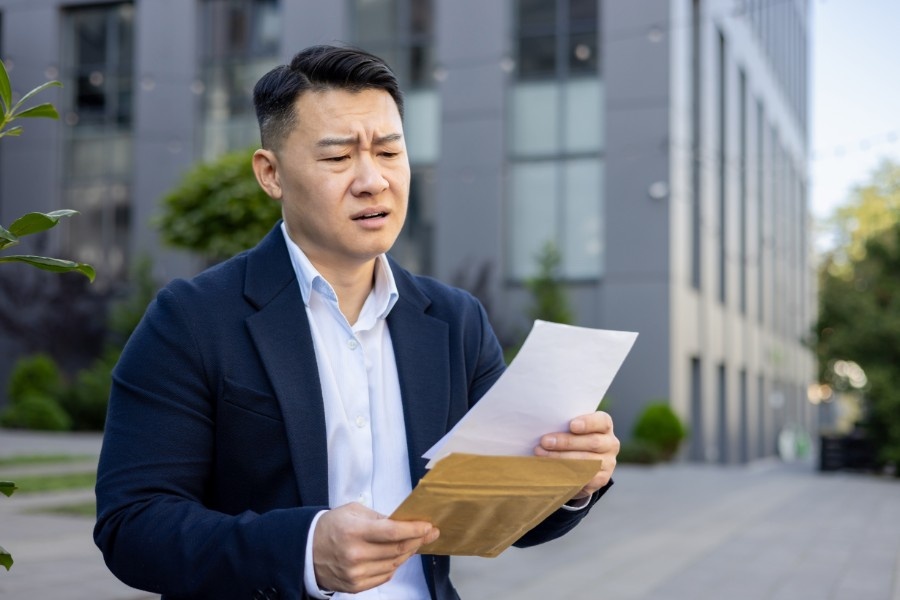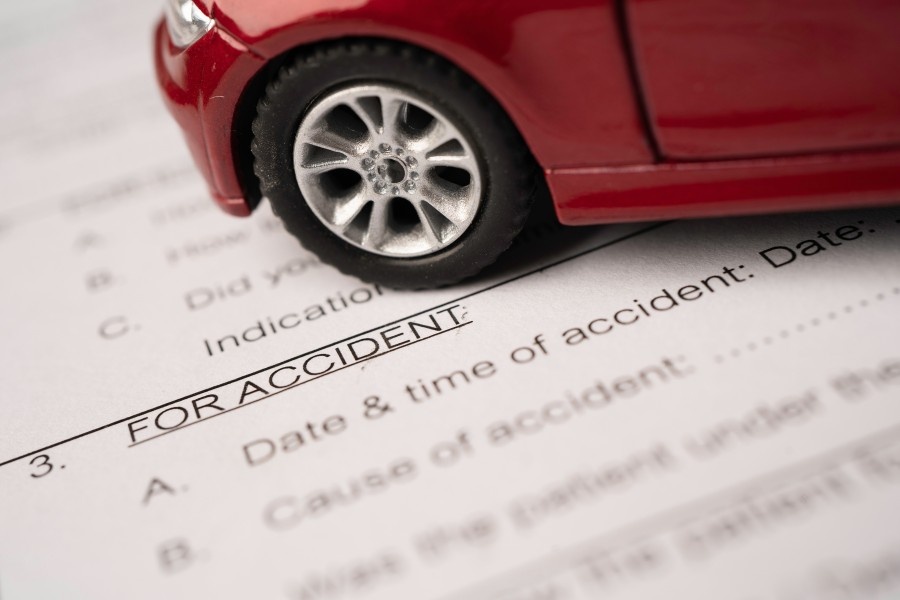Key Takeaways:
- Detailed documentation is paramount for a successful claim. Comprehensive evidence, including medical records and police reports, solidifies your case and minimizes disputes with insurers.
- Understanding the claim process smoothens approval. Familiarity with each stage, from gathering evidence to negotiation, reduces delays and increases the likelihood of a favorable outcome.
- Strategic negotiation is important for maximizing compensation. Claimants should be prepared to counter low initial offers with supporting evidence and, if necessary, seek legal counsel to advocate for a fair settlement.
- Properly establishing liability significantly impacts potential payouts. Insurance companies often dispute fault, so having clear evidence and legal arguments to prove negligence is essential for securing adequate compensation.
- Legal representation is highly beneficial in complex claim scenarios. When dealing with denied claims, serious injuries, or disputes involving multiple parties, a lawyer’s expertise can manage intricate procedures and guarantee your rights are protected.
Increase Approval Rates for an Accident Claim
Filing an accident claim often involves unexpected challenges. Claimants may face extensive paperwork, insurer negotiations, and strict evidence requirements. Many individuals struggle with rejected claims due to minor documentation errors or disputed liability. Insurance claim disputes are a common challenge, with 34% of motor accident claims facing delays or denials due to incomplete documentation or liability disagreements in Singapore. Understanding the claim process and taking the right steps improves approval chances and prevents unnecessary delays.
SG Accident provides professional guidance for handling complex claim procedures. Claimants benefit from legal expertise, strategic documentation, and negotiation support. A study revealed that claimants who seek legal representation are 50% more likely to secure higher compensation compared to those who handle claims independently (Today Online). Insurers often impose strict conditions before approving compensation, making expert assistance valuable in securing rightful settlements.
Data from the General Insurance Association (GIA) shows that 20% of claimants fail to receive full compensation due to a lack of sufficient supporting evidence (GIA Singapore). Detailed insights into documentation, evidence collection, and insurer negotiations help claimants avoid common mistakes. Legal recourse options provide additional support for claimants facing wrongful denials or undervalued settlements.
Manage the Claim Process for Faster Approval
Filing an accident claim in Singapore involves multiple stages, each requiring proper documentation and adherence to strict guidelines. Understanding the process guarantees timely submission and increases the likelihood of claim approval. Missing steps or providing incomplete information may result in delays or denials.
The claim process begins with gathering evidence. Photos of the accident scene, vehicle damage, and visible injuries provide significant documentation. Witness statements and police reports strengthen the claim by verifying details. Medical records establish injury severity and treatment costs, supporting compensation requests.
Submitting the claim to the insurance provider marks the next step. Policyholders must complete forms accurately and attach required documents. Insurers assess claims based on liability, policy coverage, and supporting evidence. Adjusters may request additional information or clarification before approving or rejecting a claim.
Negotiation follows if the insurer disputes liability or undervalues compensation. Detailed documentation and professional representation improve settlement offers. Claimants without proper guidance often accept lower payouts due to unfamiliarity with insurance policies and claim assessment criteria.
Legal action becomes necessary when insurers refuse fair compensation. External dispute resolution or litigation forces insurers to reconsider denied claims. Claimants with legal representation secure better outcomes through structured arguments and procedural compliance.

Guarantee Safety First
Prioritizing safety is the first step after an accident. Checking for injuries and assessing the condition of all parties involved is necessary. Seeking medical help for serious injuries guarantees timely treatment and prevents further complications.
Moving to a safe location, if possible, helps prevent additional accidents, especially in high-traffic areas. Turning on hazard lights alerts other drivers to the accident, reducing the risk of secondary collisions.
Calling for an ambulance is necessary when injuries are present. Even seemingly minor injuries should be examined by a medical professional to rule out internal trauma or delayed symptoms.
Offering assistance to injured individuals while waiting for emergency responders can prevent the situation from worsening. Singapore’s Good Samaritan laws protect individuals who assist accident victims in good faith.
Document the Scene
Gathering information is important for legal and insurance purposes. Exchanging names, contact details, and insurance information with all parties involved makes sure of accurate records for claim processing.
Obtaining details about vehicle makes, models, and license plate numbers helps establish accountability. Asking for the driver’s license number and the name of the vehicle’s registered owner prevents issues if the driver is not the actual owner.
Recording the date, time, and location of the accident provides a reference for future claims. Noting traffic conditions, weather, and visibility can help determine contributing factors. Taking clear photographs of the accident scene, vehicle damage, road conditions, skid marks, and visible injuries strengthens the evidence. Taking images from multiple angles guarantees a comprehensive record of the event.
Speaking to witnesses and collecting their contact information adds further credibility to the documentation. Witness testimonies can support your case in legal or insurance disputes. Requesting nearby businesses or buildings for CCTV footage may provide additional evidence of the accident.
Report the Accident
Notifying the police within 24 hours is mandatory for accidents involving injuries or significant damage. A police report serves as an official record and may be necessary for legal proceedings or insurance claims. Providing accurate information during the report prevents discrepancies that could affect the case.
Requesting a copy of the police report guarantees access to critical details when filing a claim. The report includes statements from all involved parties, officer observations, and preliminary assessments of fault. A police investigation may be necessary in cases involving reckless driving, drink driving, or hit-and-run incidents. Cooperating fully with authorities prioritizes a thorough and fair investigation.
Contact Your Insurance Company
Informing the insurance company as soon as possible initiates the claims process. Providing accurate accident details helps insurers assess liability and process claims efficiently. Delaying the notification may result in claim rejection or reduced compensation. Singapore law requires reporting all accidents to insurers within 24 hours or by the next working day.
Following the insurer’s instructions and submitting required documents prevents delays. Insurance providers may request photographs, witness statements, or medical reports to support the claim.
Avoiding unauthorized repairs before an insurance assessment prioritizes eligibility for compensation. Seeking clarification on policy coverage and benefits prevents misunderstandings about claim entitlements.
Seek Medical Attention
Getting a medical evaluation is important, even when injuries seem minor. Some injuries may not be immediately noticeable, such as concussions, whiplash, or internal bleeding. Medical professionals can identify hidden injuries and recommend appropriate treatment. Keeping detailed medical records serves as official documentation for insurance claims and legal matters.
A direct link between injuries and the accident strengthens the claim. Delaying medical attention may allow insurers to argue that injuries were unrelated or pre-existing. Seeking treatment from accredited healthcare providers guarantees the validity of medical reports in legal cases. Following prescribed treatments and attending follow-up appointments supports recovery and claim approval.
Preserve Evidence
Maintaining records of expenses supports compensation claims. Keeping receipts for medical bills, vehicle repairs, transportation costs, and lost wages provides a clear account of financial losses. Organizing all related documents simplifies the claims process and guarantees no necessary information is overlooked.
Retaining damaged property, such as broken personal belongings or vehicle parts, serves as evidence for your claim. Physical evidence can demonstrate the extent of the damage and the severity of the accident. Storing a copy of all communication with insurers, lawyers, and authorities helps track claim progress.
Avoiding discussions about liability or admitting fault prevents complications in legal proceedings. Statements made at the accident scene or during conversations with insurance adjusters can impact the case outcome. Consulting a lawyer before making any official statements guarantees that rights are protected.
Gather Critical Evidence to Strengthen Your Claim
Securing the right evidence determines the success of an accident claim. Insurance companies assess liability, damages, and compensation based on supporting documentation. Claimants with well-documented cases experience fewer delays and disputes. Incomplete or missing evidence weakens negotiations and may lead to claim denials.
Collecting Key Documents for Maximum Compensation
Accident scene evidence provides important details about the event. Photos of vehicle damage, road conditions, and traffic signals help establish fault. Timestamped images support claims by showing weather conditions and visibility at the time of the accident. Dashcam footage provides additional proof by taking the incident in real time. Physical evidence, such as debris or skid marks, can further substantiate the accident’s circumstances.
Police report strengthens the claim by serving as an official accident record. Officers document statements from all involved parties, assess road conditions, and determine preliminary fault. A report detailing traffic violations or reckless driving supports liability claims against the at-fault party. The absence of a police report weakens the claim and gives insurers room to dispute liability.
Medical Records and Witness Statements Strengthen Injury Claims
Injury-related claims require medical records that document diagnosis, treatment plans, and long-term effects. Medical professionals provide reports outlining the severity of injuries and expected recovery timelines. These records justify compensation for medical expenses, lost income, and rehabilitation costs. Medical receipts, prescriptions, and hospital discharge summaries further support compensation demands.
Witness statements add credibility to an accident claim by providing unbiased perspectives. Third-party accounts confirm accident details, reducing the likelihood of disputes. Insurance companies place significant weight on independent witnesses who corroborate the claimant’s version of events. Securing written or recorded statements soon after the accident prevents memory lapses and strengthens claim accuracy.
Expert Assessments and Additional Supporting Evidence
Accident reconstruction experts provide technical analysis for disputed claims. These professionals evaluate impact angles, vehicle speeds, and road conditions to determine fault. Insurance companies consider expert findings when liability remains unclear. Engineers and mechanics may also assess vehicle damage to validate repair costs.
Financial documents establish monetary losses resulting from the accident. Payslips, employment records, and tax documents prove income loss due to injury-related work absences. Detailed financial records help justify compensation requests beyond immediate medical expenses. Claimants seeking long-term disability benefits must present extensive medical and employment documentation.
Strengthening Negotiations With Comprehensive Evidence
Comprehensive evidence gives claimants leverage when negotiating settlements. Insurers attempt to minimize payouts by questioning liability, damages, or injury severity. Detailed documentation counters these tactics and strengthens bargaining power. Well-prepared claims have higher chances of approval and fair compensation.

Maximizing Compensation Through Effective Insurance Negotiation
Successful insurance negotiation determines the final payout of an accident claim. Claimants who prepare thoroughly and approach discussions strategically increase their chances of securing fair compensation. Insurers prioritize their financial interests, often minimizing settlements to reduce costs. Understanding negotiation tactics helps counter these strategies and improves claim outcomes.
Establishing a Strong Position Before Negotiation
Thorough preparation strengthens claim negotiations. A well-documented case with medical records, repair estimates, and witness statements validates compensation demands. Insurance companies assess liability and damages based on submitted evidence. Clear documentation prevents insurers from undervaluing claims or disputing accident details.
Determining a fair settlement range helps guide discussions. Researching similar claims provides insight into standard compensation amounts. Calculating medical expenses, property damage, and income loss establishes a minimum acceptable payout. Claimants who enter negotiations with a defined range avoid premature agreements on low offers.
Handling Insurance Adjusters and Countering Low Offers
Insurance adjusters represent the insurer’s interests and aim to minimize payouts. These professionals analyze claims for inconsistencies, liability doubts, or policy exclusions. Claimants should remain professional, provide factual information, and avoid admitting fault. Any statement that suggests shared liability may reduce the settlement amount.
Low settlement offers serve as an initial negotiation tactic. Adjusters expect claimants to counter their proposals. Rejecting the first offer and presenting justifications for higher compensation demonstrates confidence. Providing additional evidence, such as updated medical records or repair estimates, strengthens counterarguments.
Using Legal and Professional Support to Strengthen Negotiations
Legal professionals increase negotiation success rates. Lawyers understand insurer tactics, dispute resolution strategies, and claim valuation methods. Insurers respond differently to legally represented claimants, often offering higher settlements to avoid prolonged disputes. Claimants facing complex cases, disputed liability, or undervalued offers benefit from legal assistance.
Independent assessments from medical professionals and accident reconstruction experts further validate compensation demands. Professional evaluations add credibility, making it difficult for insurers to dismiss injury severity or accident circumstances. Claimants with strong expert-backed evidence experience fewer delays and better settlement outcomes.
Maintaining Persistence for a Fair Settlement
Patience has a critical function in claim settlement negotiations. Insurers rely on delays and prolonged discussions to pressure claimants into accepting lower offers. Consistently following up on claim status and responding promptly to insurer requests prevents unnecessary delays. Maintaining written records of all communication provides a reference for dispute resolution if needed.
Negotiating an accident claim requires preparation, persistence, and strategic communication. Claimants who approach discussions with evidence, a clear settlement range, and professional support secure better outcomes. Understanding insurance company tactics and responding confidently improves claim success rates.
Understanding Liability for Maximum Compensation
Determining liability plays a critical role in every accident claim. Insurance companies evaluate fault based on evidence, legal principles, and policy terms. The party found responsible bears financial responsibility for damages. Properly establishing fault strengthens claims and increases compensation eligibility.
Proving negligence remains essential in fault determination. Claimants must demonstrate that another party acted carelessly, leading to the accident. Courts and insurers assess duty of care, breach of duty, causation, and damages when evaluating liability. Sufficient evidence, including police reports, witness testimonies, and accident reconstructions, supports fault claims.
Insurance companies investigate accident circumstances to assign blame. Adjusters analyze statements, damage reports, and legal regulations before deciding liability. Partial fault reduces settlement amounts under contributory negligence principles. Claimants with clear documentation proving another party’s negligence receive higher compensation.
Legal professionals improve claim outcomes by countering insurer disputes. Lawyers challenge unfair fault determinations, negotiate better settlements, and gather expert opinions when necessary. Seeking legal assistance remains valuable when insurers attempt to shift liability or undervalue compensation.
Well-documented case simplifies fault determination and increases settlement amounts. Strong evidence removes ambiguity, preventing insurers from reducing payouts. Claimants who establish clear liability secure rightful compensation for damages, medical expenses, and financial losses.
Avoiding Costly Mistakes for a Successful Accident Claim
Filing an accident claim requires accuracy, timely action, and proper documentation. Many claimants lose compensation due to avoidable mistakes. Understanding these errors prevents claim rejections and delays.
Failure to report the accident immediately weakens claims. Insurance companies require prompt notifications to begin investigations. Delays raise suspicion and give insurers grounds to dispute claims. Timely reporting strengthens case credibility and prevents unnecessary complications.
Inaccurate or incomplete documentation reduces accident claim success rates. Missing police reports, medical records, or witness statements weakens supporting evidence. Claimants should collect detailed reports, photographs, and statements immediately after the accident. Strong documentation removes doubt and supports common mistakes to avoid in an accident claim Singapore.
Admitting fault prematurely impacts settlement amounts. Many claimants unintentionally take responsibility at the scene, affecting liability assessments. Insurance companies use statements against claimants, reducing payout eligibility. Providing factual information without assigning blame improves claim outcomes.
Accepting low settlement offers without review limits compensation. Insurance adjusters offer initial payouts below actual damages. Understanding claim value prevents premature acceptance of inadequate settlements. Negotiation and legal consultation increase potential payouts.
Ignoring legal deadlines jeopardizes compensation eligibility. Missed deadlines result in claim rejections, requiring lengthy appeals. Awareness of statutory timeframes prevents forfeited rights and strengthens accident claim cases.
Claimants who avoid these mistakes maximize settlement potential. Proper reporting, accurate documentation, and informed decision-making improve claim success rates.

Maximizing Compensation Through Legal Rights and Entitlements
Claimants pursuing an accident claim must understand the types of compensation available. Insurance companies assess damages based on medical expenses, lost income, and pain suffered. Missing key entitlements reduces overall payouts.
Medical expenses form a significant portion of compensation. Claimants should include hospital bills, rehabilitation costs, and ongoing treatment expenses. Detailed medical reports support claims and prevent insurers from disputing necessary treatments.
Lost income compensation covers wages missed due to injury. Self-employed individuals must provide financial records proving reduced earnings. Compensation calculations consider long-term earning potential when permanent disabilities affect future employment.
Pain and suffering compensation accounts for emotional distress and reduced quality of life. Courts evaluate medical reports, psychological assessments, and daily limitations. Proper documentation strengthens claims for non-economic damages.
Property damage claims include vehicle repair or replacement costs. Insurance companies assess depreciation, repair estimates, and replacement value. Claimants should obtain independent evaluations to counter low settlement offers.
Legal consultation increases compensation potential. Lawyers identify overlooked damages, negotiate higher settlements, and challenge insurer disputes. Legal representation guarantees all eligible damages are included, securing fair compensation.

When to Hire a Lawyer for an Accident Claim
Legal representation becomes necessary when an accident claim involves disputes over liability, denied claims, or complex legal procedures. Insurance companies often minimize payouts by shifting fault or rejecting claims based on technicalities. Claimants facing these challenges benefit from legal expertise to protect their rights.
Serious injuries requiring extensive medical treatment increase the need for professional legal support. Long-term disabilities, ongoing medical expenses, and loss of future earnings complicate compensation calculations. Lawyers assess medical reports, consult specialists, and present accurate financial estimates to maximize claim value.
Denied claims require immediate legal intervention. Insurers reject claims due to insufficient evidence, missed deadlines, or policy exclusions. Lawyers analyze denial letters, gather additional proof, and file appeals to challenge unjust decisions. Expert accident claim advice helps claimants operate complex legal procedures.
Negotiating with insurance adjusters often results in lower settlement offers. Lawyers counter lowball offers with strong legal arguments and documented evidence. Legal representation strengthens claims, forcing insurers to offer fair settlements instead of undervalued payouts.
Claimants involved in accidents with multiple parties, commercial vehicles, or government agencies require legal assistance. Complex liability disputes demand thorough investigation and strategic case-building. Legal professionals handle court proceedings if settlement negotiations fail.
Hiring a lawyer improves claim outcomes. Legal professionals understand insurance tactics, procedural requirements, and negotiation strategies. When to hire a lawyer for an accident claim in Singapore depends on claim complexity, dispute severity, and potential financial loss. Legal support increases the likelihood of securing rightful compensation.

Best Practices for Filing a Claim in Singapore
Increase Claim Approval With Effective Strategies
Filing an accident claim in Singapore requires proper documentation, timely submissions, and strategic planning. Mistakes or oversights lead to claim denials, delays, or reduced compensation. Following essential best practices improves claim approval rates and guarantees a smoother process. A proactive approach minimizes disputes and strengthens the case against insurer objections.
Gather Strong Evidence for Maximum Claim Value
Thorough documentation supports a successful accident claim. Collecting medical records, police reports, and witness statements establishes accident severity and liability. Clear photographs of vehicle damage, injuries, and the accident scene provide visual proof. Video footage from dashcams or security cameras strengthens claims, preventing insurers from disputing accident details.
Tracking all financial losses guarantees proper compensation calculations. Medical expenses, lost wages, and rehabilitation costs must be documented. Receipts for out-of-pocket expenses, transportation to medical appointments, and property repairs strengthen claims. Financial records confirm accident-related costs and prevent insurers from undervaluing settlements.
Submit Claims on Time to Prevent Denials
Timely reporting prevents unnecessary claim complications. Singaporean law and insurance policies require accident reporting within a specified timeframe. Failure to report within the deadline may result in automatic claim rejection. Notifying the insurer immediately after the accident allows proper case evaluation.
Following up on claim progress avoids processing delays. Insurers may request additional information or clarification. Regular communication guarantees claims remain active and prevents insurers from stalling payments. Keeping records of all correspondence provides evidence if disputes arise.
Improve Accuracy and Consistency in Documentation
Providing consistent details strengthens claim credibility. Inaccurate or conflicting information across medical reports, police statements, and insurance documents creates suspicion. Insurers may use inconsistencies to justify claim denials or reduced payouts. Reviewing all forms before submission prevents errors that impact claim outcomes.
Honest and transparent communication with insurers improves claim approval chances. Exaggerating injuries, fabricating losses, or omitting key details may result in fraud accusations. Any discrepancies identified by insurers weaken claims and reduce settlement amounts. Clear, factual reporting builds trust and guarantees fair compensation.
Seek Professional Guidance for Complex Claims
Legal assistance improves claim success, especially in complex cases. Severe injuries, liability disputes, or insurance rejections require professional support. Lawyers analyze policy terms, collect supporting evidence, and counter insurer tactics that undervalue claims. Seeking expert accident claim advice increases the likelihood of fair settlements.
Lawyers negotiate with insurers to secure maximum compensation. Legal professionals identify policy loopholes, challenge wrongful denials, and represent claimants in disputes. Professional representation prevents insurers from taking advantage of claimants unfamiliar with legal and insurance processes.
Adopt a Proactive Approach to Claim Management
Organized record-keeping simplifies the claim process. Storing medical receipts, accident reports, and correspondence guarantees quick access when needed. Maintaining a claim timeline helps track submission dates, deadlines, and follow-ups. Efficient documentation reduces processing time and minimizes errors.
Meeting deadlines, submitting complete documents, and consulting professionals when necessary maximize claim approval chances. A proactive approach prevents unnecessary delays, strengthens negotiation power, and increases the likelihood of securing rightful compensation. Taking these steps guarantees a successful accident claim and protects financial recovery after an accident.
Maximize Your Accident Claim Success
Filing a successful accident claim Singapore requires attention to detail, strong documentation, and timely action. Clear and consistent records, including medical reports, police statements, and witness testimonies, strengthen the claim. Understanding insurance policies and legal rights prevents insurers from undervaluing compensation. Proper documentation guarantees a smooth claims process and avoids unnecessary disputes.
Legal representation increases the likelihood of securing fair compensation. Complex cases involving liability disputes, policy exclusions, or insufficient settlements require professional negotiation. Lawyers advocate for claimants, guaranteeing insurers follow fair practices. Seeking expert guidance prevents errors that delay or reduce payouts. Taking proactive steps, such as tracking financial losses and medical expenses, maximizes claim value.
SG Accident provides expert assistance to handle claims effectively. Professional guidance simplifies the process, reduces stress, and improves success rates. Claimants benefit from industry expertise that guarantees just compensation for accident-related losses.
Achieve Fair Compensation With SG Accident
Maximizing claim success starts with professional guidance. SG Accident assists in handling insurance disputes, negotiating settlements, and securing rightful payouts. Industry experts provide personalized strategies to guarantee an effective claim outcome.
Expert legal support prevents insurers from denying or undervaluing claims. SG Accident guarantees all eligible damages are included, maximizing compensation. Professional negotiators challenge unfair settlements, guaranteeing clients receive what they deserve.
Take control of your accident claim with SG Accident’s expert assistance. Get the guidance needed to manage the claims process with confidence. Contact SG Accident today for professional support and a higher chance of claim approval.



